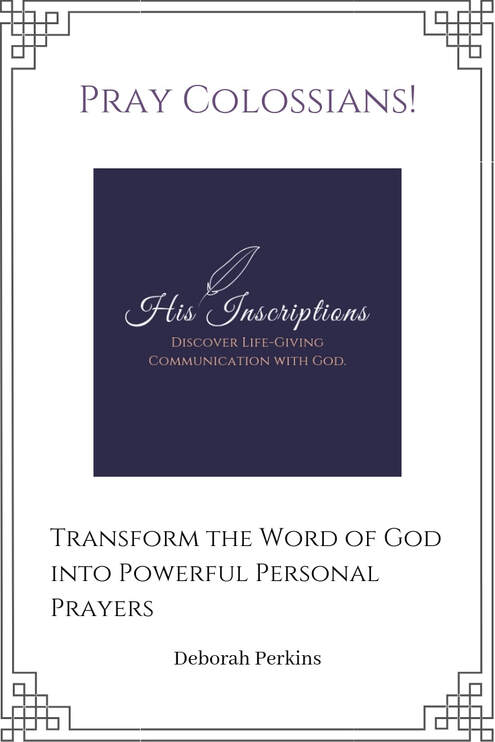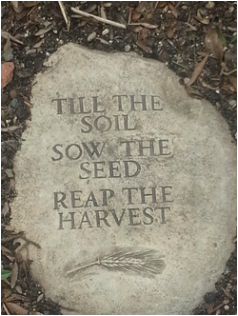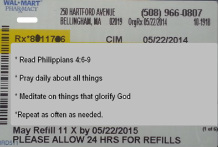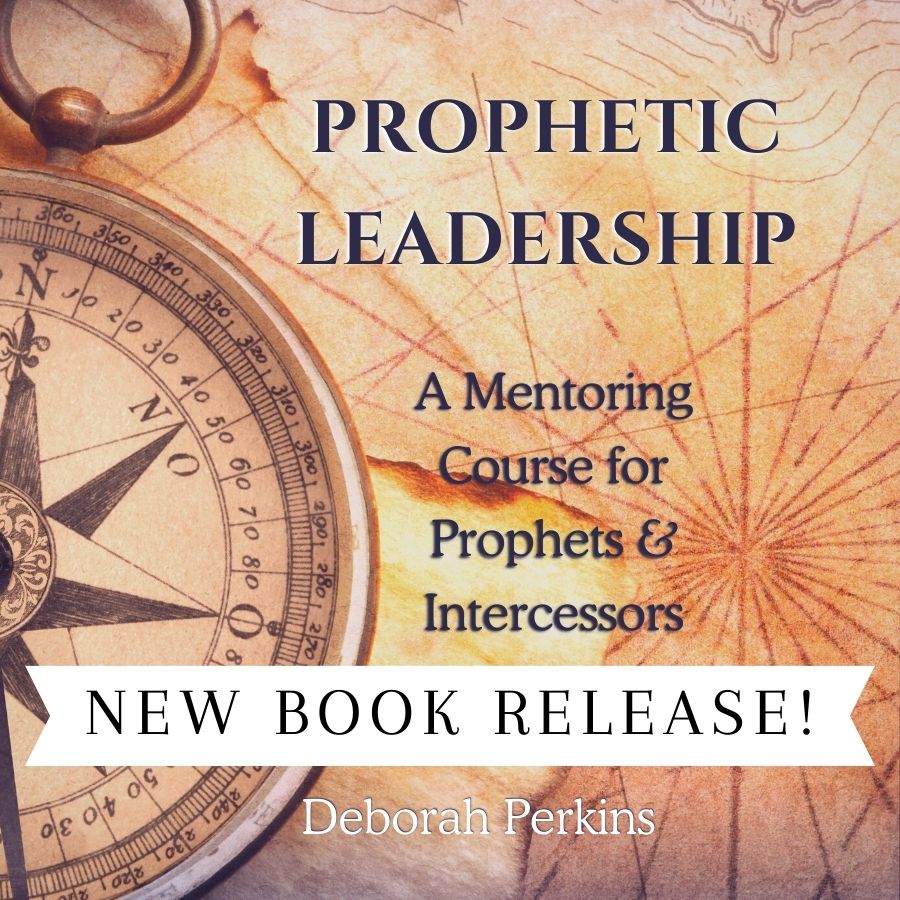|
In this new era, I hear the Lord issuing an age-old call to His Body to return to our First Love: “I know your deeds, your hard work and your perseverance. I know that you cannot tolerate wicked people, that you have tested those who claim to be apostles but are not, and have found them false. You have persevered and have endured hardships for my name, and have not grown weary. Yet I hold this against you: You have forsaken the love you had at first. Consider how far you have fallen! Repent and do the things you did at first.” (Revelation 2:2-4) "WILL HE EVEN MOLEST THE QUEEN WHILE SHE IS WITH ME IN THE HOUSE?" ~Esther 7:8 Dear Friends, Those who desire to live a life of prayer in the Presence of the Lord will eventually find that there is someone who seeks to interrupt intimacy and destroy identity. I believe that what I share today will set many people free from a demonic strategy of Satan used to steal peace and stop believers from abiding in their secret places with the Lord. On January 5, 2020 as I prayed I saw a vision. In the vision, the Lord gave me a key to the armory of God. I took the key and entered into a spacious room with extraordinarily high ceilings. An iridescent peach-gold light permeated the room, which was much taller than it was wide. On all four walls were hung beautiful shining swords in an ordered display. From floor to ceiling, these gleaming swords covered the walls and each bore a label of some sort, identifying what it was for and how it was used. I stood in awe of this collection: so exquisite! Yet designed for use. I wondered how someone of average height like me would ever reach the uppermost swords on the wall. As I was contemplating this question, I noticed, in the opposite corner of the room, an angel of gigantic proportions. The angel was as tall as the ceiling. He was a translucent, winged white presence whose sole function in the armory was to remove swords from the walls as they were needed, giving them to the ones who had requested them. Also, in the center of the room, there was a rectangular glass case, where I saw someone carefully wrapping a brand new sword, recently cataloged, in a beige linen cloth of some kind. This weapon, too, was to be displayed in God’s armory. Then I heard the Lord say: As I sat down to write and pray this morning, the Spirit of God impressed upon my heart to turn the pages of Paul’s letter to the Colossians into a prayer. With several translations of Colossians in front of me, I began meditating on the powerful words about Christ’s preeminence, transforming them, paragraph by paragraph, into personal prayers. I realized then just how rich God’s Word is when we pray it as promises over ourselves! Never are we closer to praying the will of God than when we are praying the Word of God! The Spirit and the Word work together as we pray, making our divine inheritance manifest as we speak God’s Word back into His heart. To pray the Word of God is to agree with what God has already said He will do, setting in motion spiritual blessings that have been seen throughout history and can be activated once again by faith. Space limits me to sharing just the first section of my prayers from Colossians with you today. If you would like to order the complete booklet of "Pray Colossians!" please click below to purchase in our store. May this heartfelt “prayer paraphrase” of Paul's first-century letter to the Colossians reveal more to you about your inheritance in Christ and build your confidence to begin praying the will of God over your life! Not many Christians will admit to being angry with God. It seems unholy somehow, against the "rules" of Christianity that we have been taught. After all, if God is no longer angry with us, then what right do we have to be angry with Him? Yet simmering beneath the surface, even the best believers have some level of anger towards God, anger they often won't admit even to themselves. Why? Because most of us, no matter how holy, deal with unmet expectations.
One of the greatest breakthroughs in how we understand God can also lead us to one of the greatest difficulties: God is a person! We can have a wonderful, personal relationship with God, yet that very same truth can become a stumbling block to us when we transfer natural human expectations over onto Him and forget He is also divine.
There are some Bible stories that are so powerful, they have the ability to change your entire perception of who God is and how He feels about you. For me, one such story is found in Luke 24. In the midst of great grief, turmoil, and confusion, two disciples encountered the Wonderful Counselor and were forever changed. In places of pain and confusion myself, I reread this story and see such beauty in it. Take a walk with me along the Emmaus Road to see how brokenness is turned to beauty. At the beginning of September, Jewish New Year 5779, I heard the Lord give a warning. The enemy, it seems, is bent more than ever on undermining believers in this hour. (One glance at the Kavanaugh hearings is enough to convince me of that!) This is the year, the Lord emphasized, to go deep in Him. To hold on to the Word of Truth as never before, to guard against deception, to seek Him for greater revelation. We will need it! In a charismatic church I attended a couple of weeks ago, the pastor asked this question: "Be completely honest. How many of you read your Bible on a daily basis?" Fewer than 5 hands went up. Alarmed, I decided to ask the same question in a second church where I preached the following Sunday. Again, the same response - just 6 or 7 hands this time. I was amazed. Not coincidentally, the same week I received Lifeway's "Facts and Trends" magazine in the mail. One of the articles contained this statistic: 66% of Christians (including Evangelical, Mainline and Black Protestant churches) believe that "many religions can lead to eternal life." Among Catholics, that statistic jumps to 79%.* The Bible teaches that Jesus is "the way, the truth and the life. " (John 14:6) No one comes to the Father except through Jesus Christ. For a Christian, then, this belief in many roads leading to heaven is, quite simply, untenable. How did we get here? November 23, 2015 is the International Day of the Bible. Christians around the world are celebrating the Word of God, which has now been translated, at least in part, into over 2500 languages. In America, we also celebrate Thanksgiving this week, the beginning of our nation's freedom to worship God. The day before I began writing this post, I spent a few minutes thinking about what I am most thankful for this year. God, family, and YOU - my readers - top the list, of course, but what really creates thanksgiving in me is that there is such a wealth of Christian resources available to so many of us around the world today. Think about it: in the United States alone, there are multitudes of Bible-believing churches within driving distance, along with Spirit-filled conferences, prayer meetings, and worship gatherings. You can even get a ministerial degree online! You might also have noticed that thanks to technology, I can link all the Bible verses I use on my website to Bible Gateway, a powerful Bible search engine (www.BibleGateway.com). Bible Gateway, in turn, circulates my blog along with many others to their readers around the world. Online study of the Bible is so common now that even in our church services, we often see people pull out their cell phones when the pastor says "please turn to the book of Hebrews!" Advances in technology are not just impacting the US. In the 1980's it was prophesied that one day, Chinese workers in the rice fields would have 24/7 access to Christian programming - via a "device like a TV on their wrists." This was long before anyone had conceived the idea of smartphones and smartwatches. Today, Chinese readers make up the second largest group of readers for our "His Inscriptions" blog - outranked only by readers in the United States! Despite all of our divisions and denominations, the great test for every Christian is the test of love. Can we love without judging, when our brother believes differently than we do? Can we rejoice in the preaching of the gospel by those "less qualified" than ourselves? Can we allow for differences of opinion and interpretation while still agreeing on the essentials of the faith? This is the great test for every Christian: not simply to preach the gospel ourself, but to allow others to preach Christ in the knowledge they have attained, however limited. Paul recognized this in his letter to the Philippians. Instead of being upset by those who preached Christ out of "selfish ambition" or even contention, he rejoiced that the gospel was being preached at all! (See Philippians 1:15-18). Sometimes, even those who attack our faith end up drawing more attention to it, instead of causing its demise. The plight of Kim Davis, a town clerk in Kentucky (who refused to issue marriage licenses to same-sex couples), is a good example of this. As Christians, whether we believe her course of action is right or wrong, we should still rejoice that attention is being drawn to the gospel, forcing people to re-evaluate what they believe and to dig deeper to find out what the Bible says about such issues. The simple, timeless truth is that we are not called to be masters of theology, but to master love for our neighbors. The golden rule of Christianity applies to everyone, not just to some. When we become absorbed in semantics and arguments over words, we have lost the essence of the gospel message. Each of us must walk with God to the degree or level that we have attained, says Paul, making sure that we share the unity of mind that characterizes mature believers. (See Philippians 3:16). It is up to God to reveal the areas where we are in error or where our beliefs do not fully coincide with Scripture. (Philippians 3:15). Does this mean we cannot bring correction to our brothers and sisters in Christ? No, but the manner in which it is done must be loving, and it is best done only at the Lord's leading. We tend to err on the side of judging too quickly, rather than seeking God's heart for the growth and benefit of others. Paul's response to the schisms or immaturity of fellow Christians was to pray for both knowledge and love: And this I pray, that your love may abound
If we follow Paul's example and take our concerns to the Lord in prayer, we will find that God takes away our desire to judge and replaces it with a sincere concern for others. Love covers offenses. Love may also confront when offended, but makes sure to guard the relationship in the process, rather than burning the bridge.
No matter what issues arise in the coming days, the greatest test will still be the test of unconditional love. This kind of love IS possible, despite our human flaws, when we stop jealously guarding our "corner" of the truth and allow God to be God, perfecting and refining each one of us in the true knowledge of Him.
Deborah Perkins is passionate about connecting others with God. She writes about knowing God and hearing His voice at HisInscriptions.com. Follow her on Twitter and Facebook, or contact her directly here.
Followers of Jesus have a unique dilemma. From the time of Christ’s resurrection until now, all we have to lead us are words. By words, I mean the words God has spoken to us, whether in Scripture, prophetically, or in the quiet places of our hearts. We follow Him on the basis of His Word, taken on faith, and this can be a challenging task. After all, it is rare that God speaks in an audible voice. He is invisible to us, yet we see Him with the eyes of our hearts. He hosts no seminars and posts no YouTube videos, and yet we hear Him. When we are looking for detailed directions, His words to us might seem primitive or inadequate, too small to do us any real good in our complicated world. Why doesn’t He just tell us what to do, or how to get there? Words are Seeds
The answer lies in a simple analogy, one that Jesus often used to help His disciples understand Him. Words are seeds. When we come to God seeking direction, He gives us what we could call a “packet" of seeds. On this packet is a picture of the finished product, with perhaps a simple description of how to plant the seeds and what the growing time might be for our location.
The seeds might represent a specific promise for our future, or a vision of the provision He intends to supply. They might be a picture of what our “promised land” will look like. It is rare that God gives us a finished garden in bloom in answer to our prayers. He’s much more likely to give us a seed starter pack and ask us to do the sowing (with Adam and Eve as the obvious exception!) Our seed packet might come in the form of a strong desire of the heart that doesn’t go away over time, a specific scripture promise, or a prophecy. It might be a missionary call or a ministry focus. In most cases, others will confirm that they, too, can “see” the type of seeds God has given us. Biblically, it’s a good thing to ask God to confirm our gifts and callings through others. It helps us to stay focused on our personal harvest. A seed will not take root until it is sown. How do we sow word-seeds? With our prayers and our confessions of faith. We agree that the word we have heard is good, and ask God to bring it to pass. We keep speaking in faith ("I'm growing tomatoes this year!") until we see our harvest appear. This agricultural principle is easily understood, yet many of us feel silly "speaking faith" concerning spiritual things when we don't see immediate results. We misinterpret delay as failure, when all the while our seeds are secretly taking root underground. If we watered them faithfully instead, we would be much more productive! We must learn to apply the eternal law of sowing and reaping to our spiritual lives. (See Genesis 8:22 for confirmation). As Bible believers, we have only seeds – or words – to go on. We are all called to be sowers, waterers, and harvesters of His Word at different times. But in all cases, we must act on what we’ve been given, and work as gardeners do to reap our harvest or cultivate our soil. This is an obvious pattern in Scripture, and yet when it comes to our own lives, we struggle. When we see only the same dirt that was in front of us before, we abandon the garden in disgust and blame the seed for its imperfection. We lack the patience and shun the toil of the gardener. Our Hearts are Soil
While the seed packet tells us what the seeds need, it doesn’t tell us anything about the condition of our soil. God gives us something to sow, and leaves the rest in our hands. He expects us to know the condition of our hearts, our circumstances, and all the environmental concerns unique to us. He expects us to fight off the diseases and pests that threaten to destroy our crops. He expects us to gather in the harvest instead of leaving it to wither on the vine.
Gardens, like people, require time and attention to flourish. When all we have are words from God, we must be careful not to despise the dirt that lies directly in front of us. It’s the “dirt” of our lives that must be dug up, weeded, and cultivated before the seeds can be sown to make that garden. Even a heart full of good soil requires constant amelioration through repentance, forgiveness, and healing. If we skip these steps and abandon the work, we will only end up admiring others’ gardens and never growing our own. God may call us to till someone else’s garden for a time, to teach us how to garden ourselves. But it is my firm belief that God has unique promises for each one of us that cannot be realized until we tend to them ourselves. God gives us each the types of seeds we are capable of growing. The Words (or seeds) God gives His people always work. They are heirloom seeds: uncontaminated and having unlimited reproductive potential. Some of us are called to grow fruit trees, others herbs, others still will grow vegetables. Each of us is unique in our Kingdom purpose. Whatever we invest in is for the nourishment of ourselves and those around us. Once we take the steps of digging up our soil, sowing the seeds, and keeping our garden free of weeds, God shows us what to do next. Our seedlings grow, taking on visible shape and form. When we need it, God supplies us with divine “Miracle-Gro:” ™ fresh words of direction or instruction to care for the garden we are creating. Through patient work and renewed understanding, we inherit the promises we first saw on our seed packets. I pray that when all you have are words, you’ll recognize the incredible gift you’ve been given by God. That you’ll see His words as precious, heirloom seeds with the ability to reproduce and bear fruit. Along with that gift, I pray you’ll take to heart the promise God gave Jeremiah: “You have seen well, for I am watching over My Word, to perform it.” (Jeremiah 1:12, NASB). If you accept the challenge of sowing God’s words into good soil, you’re guaranteed to reap a mighty harvest!
c. DeborahPerkins / His Inscriptions
DeborahPerkins is passionate about helping others connect with God. She writes about knowing God and hearing His voice at His Inscriptions. You can follow her onTwitter andFacebook, or to subscribe to her weekly blog,click here.
True intimacy is a function of time. If we want to know someone well, we must spend quality time with that person. There really is no substitute for time when we are building a relationship that is heart-to-heart.
A by-product of time spent together is trust. Our everyday experiences of life lived in proximity to others teach us who is trustworthy and who is not. We learn who keeps their word and who fails to deliver. In most cases, we choose our closest friends on the basis of their trustworthiness. In the Bible, one Greek word for faith – pistis – is translated “trust,” or “full persuasion.” Jesus tells us in Luke 17:5 that faith (here, “pistis”) the size of a mustard seed can cause mountains to move. When sown, even a tiny seed of faith has great potential for miracles. Yet like all seeds, it must grow. It isn't the size of the seed that matters. It's the nurturing of the seed that's important. How Does Faith Grow?Our relationship with God works the same way. We seed our time into His Presence, He waters us with His Word, and our trust grows. When we magnify those “giants of the faith” in God who seem to produce such impressive results everywhere they go, we are really celebrating those who have developed great trust in God and His Word over time, creating what we call “great faith.” In Christian circles, I think we sometimes complicate things that are actually quite simple. We look at the “faith giants” we know and think to ourselves, “I could never do that / be like that / believe God for that!” We forget that faith is simply trust, and trust is built over time. Biblical giants like David and Elijah began their relationships with God in obscurity, too. Hidden in caves and tested in the wilderness they forged their trust with God in solitude and prayer. During one-on-one time with their Maker, they learned to hear Him, to trust Him, and to know Him. Jesus did the same. A Divine Invitation
There are times when we seek God in peaceful contemplation. But there are also times when God seeks us, driving us to Him in times of dire need. Though we rarely consider them as such, our trials are somewhat like divine invitations to come more deeply into His Presence and get to know Him. What feels like “down” is actually “up.” What presents itself to us as need becomes our anointing – IF we accept the invitation. When there is nothing left for us to hold on to except the Word, we find that we are conformed more closely to His Word. We dig deeper because we simply must find Him, must connect, must receive – or all seems lost. Our Jacobean effort results in blessing. Despite our limp, we have met with God. We know Him. We have heard Him. Leaning on our Beloved, we emerge from our trial on fire: purified yet not consumed by the fire that threatened us. Powerful yet humbled. Radiant yet unaware of His glory streaming from us. We are confident now, sure of an aspect of God’s character we had not been certain of before. We believe we can trust Him - Aha! - we have faith! Faith is not having the solutions to our problems. It is knowing and trusting the One who does. The power to live life and do great things comes to those who believe, trust, and know their God. (See Ephesians 1:17-21; Eph. 3:20-21; 2 Peter 1:3). If we need a miracle in our circumstances, we must spend enough quality time with the Miracle-worker to learn how He operates. There is no other way. Good relationships take time. Perhaps this is one reason why God’s mercies are “new every morning.” It takes a lot of mornings for us to become the faith giants He has called us to be! In mercy, God issues daily invitations to come and get to know Him better. Have you responded to His R.S.V.P.? The only difference between you and a “faith giant” is that the giant plans to respond… every time.
Prayer: Lord, I do want to know You more. I choose to respond joyfully to Your personal invitation to come and be with You. Don’t let me put You off because of my busy schedule. I pray that I would turn to You in every need and trial I have, seeking to know You more. As I do so, help me to locate the power You are releasing to walk through these challenging times. I respond “YES” to Your invitation, every time! With all my heart, I look forward to being with You. Amen.
c. Deborah Perkins/His Inscriptions
Deborah Perkins is passionate about helping others to connect with God.
She writes about knowing God and hearing His voice at HisInscriptions.com. For speaking requests, or to contact her directly, please click here. You have just been issued a summons. You must appear in court immediately, and not as a juror. You have been called by the prosecution to take the stand as a defendant in a case with a high dollar value. If you lose, your sentence could include a lifetime in prison. What’s worse: you have been wrongly accused. If it sounds like I am being dramatic, rest assured, I am not. The first paragraph is entirely true. As a Christian, you are – this very moment – being called by the devil (the prosecution) to take a defensive stand against his false accusations. He is, unfortunately, a very good lawyer, having practiced his craft since time began. Nevertheless, you have an excellent lawyer as well: your advocate, Jesus. Now, I know you’re on the right side of the law, and you know you’re on the right side, but the prosecution wants to prove otherwise. If he succeeds, he gains access to your money, your mental and physical health, your family, or even your life. His goal is to lock you up for a lifetime. Having a good lawyer will help, of course, but in this heavenly courtroom what matters most is your testimony. You are about to be tested on the facts, and whether your actions are legal. If you don’t know your rights as a citizen of heaven, or if the enemy can find a weakness in your argument, you lose.
As in any trial, you must have two weapons. The first is an excellent lawyer who is familiar with your case. If you’re a Christian, you already have a good relationship with the best attorney there is in spiritual matters: Jesus Christ. In Him you are on the right side of the law, no matter what you have done. He has also never lost a case. As long as you choose Him as your Advocate, you stand a pretty good chance of winning.
The second weapon is a detailed knowledge of the law, which in this case represents your covenant with God. This is where the prosecution often gains the upper hand, since you do not know the law as well as he does, nor are you used to defending yourself against such deceptive, unfair arguments. You will find that the prosecution has accessed information about your life that you did not wish to be made public. You will be horrified to hear that he can call to the witness stand, one by one, people who willingly testify against you, dragging past sins to the surface and making you look like a heartless criminal. In the final analysis, it will be very important that what you do and say lines up with the law. Satan’s legal strategy from the beginning has been to cast doubt on our words: “Did God really say…?” (Genesis 3:1-3). Your best defense is going to be to stick to the words your attorney, Jesus, gives you to say, and avoid adding too much of your own. “Isn’t that deceptive,” you might ask? After all, I really am guilty of a lot of things, and I don’t always do what I should. What that witness said about me was true: I really didn’t like the guy, and I treated him badly because I couldn’t forgive him. I deserve punishment.” The question is, do you? You might have opened the door to some legal “loopholes” the prosecution is now using against you, but the real test is whether you believe and can prove that you are innocent. In a happier moment, it’s easy to believe your mistakes are covered by the blood of Jesus, which ratifies your covenant with God. But when the opposition mounts, can you still stand on that testimony? Do you know which clauses in your contract validate what you have experienced spiritually? Those who do cite them and win their cases. Those who don’t have a harder time. Fortunately, Jesus knows what it’s like to be a defendant on the courtroom stand. He was challenged twice: in the wilderness (Luke 4) and before His death (Luke 22-23:47). Both times He adhered to God's covenant and responded only with the Words of God. Both times, He won.
Jesus knows what it’s like to be tried as a criminal on the wrong side of the law. Jesus didn’t allow his feelings to contaminate His testimony. Instead, He studied His covenant with God until He knew the law inside and out. He lived a legal, righteous life even when falsely accused. He accepted a death sentence from the enemy only because He knew that God would ultimately give him the keys to get out of that prison. He spoke only the words of the covenant and He fulfilled the law perfectly in His life on earth.
We believers are summoned daily to take the stand- not as those who have lived a perfect life, as Jesus did, but as those who are protected by His knowledge of and adherence to the law. Every time we are summoned, we should arrive at the courtroom with contract in hand. Everything we say in our defense should be based on what Jesus, our attorney, outlines for us. We should stick to our testimony of His goodness like glue. Anything else we say can and will be used against us! The more certain you are of your innocence in Christ and your rights as a believer, the more likely you are to live a blessed life. Prayer: Jesus, You are the most successful attorney I could ever have. I am so grateful that You know how to defend me against the trials and accusations the enemy is using against me. I have been falsely accused, Lord! Give me the time I need to sit down with you and review our covenant until I know it inside and out. Convince me of the blessings and freedom You have already won for me, so that my testimony holds up under every cross-examination. I praise You for your victories! I thank you that You have the keys to unlock every jail cell the enemy throws me into! We win!
"And if any man sin, we have an advocate with the Father, Jesus Christ the righteous.
And He is the propitiation for our sins; and not for ours only, but also for the sins of the whole world. 1 John 2:1-2, KJV Deborah Perkins is passionate about helping others to connect with God. She writes about knowing God and hearing His voice at His Inscriptions.com. For speaking engagements, or to contact her directly, click here.
Just because you're a Christian doesn't mean you're fearless.
In fact, God tells us not to fear roughly 365 times in the Bible. That's once for every day of the year! Sure, there are some amazing examples of fearless faith out there, from the spies who entered the Promised Land to present-day martyrs facing ISIS. But most of us, even on a good day, battle fear in one form or another. We know that fear is part of the curse (see Leviticus 26:36-37 for an example), and God gives us the ability to overcome our personal fears. But what of the larger-scale fears, the things that threaten to undo not just us, but our communities, our nation, and our world? These things are on the rise as Satan propels the battle between good and evil to a climax. Luke records Jesus's words, saying that men's hearts will fail them "from fear and the expectation of those things which are coming on the earth." (Luke 21:26) Earthquakes, diseases, and famines will be the norm. He says the end times will be full of "fearful sights and great signs from heaven." (Luke 21:11). Those words don't seem very comforting at first glance. Many Christians avoid the end-time prophecies in the Bible, not just because they don't understand them, but because they seem full of "doom and gloom" for a people who should be continually filled with joy and peace! I believe that every word Jesus spoke is still relevant to us today. And as I began to study fear as it relates to current events, I realized that these end-time prophecies are a critical key for us as we overcome our fears about what lies ahead. The reason? A known enemy is easier to defeat than an unknown one. The Genius of Jesus
Most of our fears are irrational, drawing their power from our emotions rather than the facts in front of us. Those of us who have been hurt in certain areas are predisposed to fears in the areas where we were wounded.
I once was horrified to find a drug addict hiding behind his shower curtain, in an apartment a realtor intended to rent to me. For a while after that incident, every time I opened a shower curtain, I did so with trepidation! Statistically, the likelihood of that ever happening again was extremely low. But the fears persisted until I dealt with them.
The genius of Jesus is that He prepares us ahead of time for what is to come. The power of the fear I had about the man in the shower came largely from the element of surprise. What you don't expect alarms you far more than what you can foresee. This is why we prepare a child, for instance, by telling him that the shot at the doctor's will hurt, but only for a minute. We want him to know how it will end and assure him that he will be safe.
In the same way, Jesus tells us that the end times are going to be difficult, but only for a while. He takes great pains to give us details about the tribulations and about what He expects from us as we face them. He gives us specific things to do that will help us feel more peaceful during a chaotic time. Click here for a free, printable download: "10 Things Jesus Wants You to Do in the End Times." Perfect Love Drives Out Fear
Apart from the wisdom of God, we also have the love of God to help us overcome fear. 1 John 4:18 tells us that perfect love casts out fear, because fear has to do with torment, or punishment. In the end times, only those who are living apart from God's ways will face punishment. I know from experience that when we pray and ask God for more of His love, He is eager to comply!
So overcoming fear is a two-pronged approach. We need both the wisdom of God found in Scripture and the experiential knowledge of the love of God in our hearts. Isaiah clarifies this beautifully: "Wisdom and knowledge will be the stability of your times, and the strength of salvation." (Isaiah 33:6). Your testimony of God's love, combined with the strategic wisdom He gives you through His Word, will cause you to overcome any fears you might have about the end times. It will keep you stable when the world is falling apart. Instead of running from Goliath, as the Israelites did, you'll stand and slay your Goliath like David did. You'll be fearless in the face of fear.
c. Deborah Perkins, His Inscriptions.com. All Bible references NKJV unless noted.
Deborah Perkins is a prophetic teacher whose passion is connecting others with God. She writes about knowing God and hearing His voice at His Inscriptions. You can subscribe to her weekly blog for free, follow her on Twitter, or contact her directly here.
Sustainable, eco-friendly products are in high demand on our ever-withering planet. We are using up resources faster than we renew them, leaving a weakened landscape for our children and grandchildren. In Latin, to "sustain" literally means "to hold up."* The question is, if we aren't holding up this planet, who is? Christians know from Colossians 1:17 that ultimately, Jesus is the one who "holds all things together." What you might not know is that the Bible also makes an extraordinary claim concerning sustainability. Jesus states in the Gospel of Matthew: "Heaven and earth will pass away, but My Words will not pass away." (Matthew 24:35, RSV). To a world that is decaying rapidly, Jesus shocks His audience by claiming that the Word of God is eternal, renewable, and sustainable. What does this mean? God's words are our most sustainable resource; their riches cannot be depleted. The resources available to us in the Bible never run out. There is an endless supply of whatever we need: healing, provision, forgiveness, strength, love and power. And before you dismiss His words on this topic as referring only to spiritual things, take a look at these practical examples:
Normally, in order to be considered sustainable, a resource must be renewable, such as with the regrowth of a tree or the recycling of a product. In the Scriptures, however, we see examples of even non-renewable resources being multiplied. How does this work? It happens when Jesus, the Sustainer of all things, releases wisdom to those with renewed hearts and minds.
Joseph as Prototype
The story of Joseph is meant to be a picture of the wise governance of God, who strategically lays up provision for His people in time of need. Through the wisdom of God, Joseph foresaw in a dream the famine that would come upon the earth. In partnership with the Word of God, he made provision for leaner times. His faithful governance preserved resources and protected people's lives.
Similarly, the Bible says: "How great is Your goodness, stored up for those who fear You!" (Psalm 31:19). We are meant to see in Joseph's story the goodness of a God who cares more for us than for many sparrows (Matthew 10:31). Because the things of God are eternal, they never run out. There is enough supply, enough forgiveness, enough healing and riches for everyone. This is how the apostle Paul was able to write to the Philippians, "And My God shall supply all your need according to His riches in glory by Christ Jesus" (Philippians 4:19). Paul knew the eternal nature of these riches. He knew he could make a radical promise like that and put it in writing even for the generations to come, because God's bank account cannot be overdrawn! His creativity is limitless! He owns the cattle on a thousand hills, and He cares for you. So how do we tap into supernatural sustainability? The answer is in the same verse: "...by Christ Jesus" (Philippians 4:19). Christ holds the keys to the safe where your riches, healing, wisdom, ideas, and strength are stored. More than that, Christ Himself IS the key to all these things. As He showed Jacob how to prosper in a bad economy, so His loving care for you unlocks His provision (See Matthew 6:25-34). You have only to ask for wisdom. Look again at the story of Joseph. Joseph's brothers came to him in Egypt, impoverished and hungry. The crops had failed; there was no food on "all the face of the earth." Joseph, the governor, was the only one who could open the storehouses and sell grain. (See Genesis 41:56-57). Because they humbled themselves and asked for grain, Joseph sustained them. In fact, in a striking parallel to Psalm 31:19, the Bible says: "And (Joseph) sent his father these things: 10 donkeys loaded with the good things of Egypt, 10 female donkeys loaded with grain, bread, and food for his father for the journey." (Genesis 45:23). In addition, Joseph gave his family several changes of clothing and later, land. To Benjamin he gave 300 pieces (shekels) of silver - quite a large sum! Clearly, we have a prophetic picture of the goodness and abundance of God towards those who fear Him! When the world's resources run out, God will sustain us.
We know from Colossians that Jesus holds all things together (Col. 1:17). He is the Creator and Sustainer of all things. We also know from scripture that not only is the Word sustainable in itself, but it also has the power to renew our minds (Romans 12:1). For the Christian, the key is to tap into the Author of sustainability in order to learn how to transform and sustain the world we live in.
When Jeremiah prophesies that God has good plans for us, and plans to prosper, not harm us, he is reminding us again of a sustainable, substantial kingdom whose resources cannot be depleted. We access all this by faith in our brother, governor and King: Jesus. And we trust that because we are family, He will take care of us. Oh, how great is Your goodness,
*From "sub," meaning "under," and "tenere," meaning "to hold."
c. Deborah Perkins, 2015. All references NKJV unless noted.
Deborah Perkins is a prophetic teacher whose passion is to connect people with God. She writes about knowing God and hearing His voice at HisInscriptions.com. Follow her on Twitter or Facebook, or contact her directlyhere.
I took a walk down to a local pond last week to rest and pray. The stillness of water relaxes me, and I sat for a while enjoying the warm sun and the beautiful scenery. Psalm 19 tells us that "the heavens declare the glory of God, and the firmament shows His handiwork. Day unto day utters speech, and night unto night reveals knowledge." (Psalm 19:1-2, NKJV) The Lord told me once that the "ancients" - our fathers in the faith - used to meditate far more often than we do, and as a result, they were rewarded with far more wisdom. I sought rest, not wisdom, yet God gifted me with both. He reminded me that water in Scripture is sometimes used to symbolize the Word (see Ephesians 5:26). And wind ("pneuma", or "breath," in the Greek), often represents the Holy Spirit. When wind blows upon the water, creating ripples or waves, suddenly the direction of the wind, normally invisible, can be seen. Asking the Holy Spirit to breathe upon the Word as we read it will help us to discern more clearly His direction for our lives. The Bible comes alive. The movement of the Spirit is seen. In the same way, a topical look at the water of the Word gives a certain amount of peace. But when we choose to immerse ourselves in water, rather than just look at the surface of it, we find that deep within that water is life. All kinds of living creatures abide there, things we would never see if we did not immerse ourselves. Tides, or perhaps the directional pull towards a waterfall, can now be felt. In the water, it is easier to sense the direction that water is taking, and we can allow ourselves to be carried along to where the water - or rather, the Word - wants us to go. Living water! Isn't that what Jesus was talking about? We came to the Word seeking peace and rest, and yet as we immersed ourselves in it, studying it, we began to gain wisdom from God. We now know the direction He is taking us, and with the wind at our back and the swell of the waves, we float effortlessly to our destination. Christians have a ritual of immersion called baptism. My youngest son is obeying Christ's command to be baptized this weekend. He is choosing to believe that his interaction with the water will yield new life in the Kingdom of God. I pray that as he grows, he will continue to immerse himself in the water of the Word, which has the power to guide and direct him all the days of his life. Isn't it interesting that following Jesus begins with a command to be baptized in water and ends with a command to abide in the water of the Word? To help you study the relationship between the water of the Word and the wind of the Spirit, I am including a link to a teaching I delivered recently at Indian Lake Community Church in Worcester, MA. I believe it will bless you and challenge you to take the plunge: to dive into the Word daily and to enjoy the feel of the wind on your face as you follow Him.
https://db.tt/iA55MsQg
*Please note: Because this is a live recording, there is some background noise. I encourage you to press in and discover all that God wants to say to you through this teaching.
c. Deborah Perkins, 2015
Deborah Perkins is passionate about helping others to connect with God. She writes about knowing God and hearing His voice at HisInscriptions.com. For speaking invitations, or to contact her directly, please click here.
Would you go to church naked? No? Maybe you're shocked that I asked such a question. It's not the type of topic Christians usually write about, is it? Well, I have a good reason for asking the question. Many people DO go to church in the buff. Spiritually, that is. They sit next to you in the pew, vulnerable and unclothed. Surprised? You shouldn't be. You've seen them: believers dressed in their "Sunday best" suits and stilettos, with a look that is designed to lead you to one conclusion: they really have it all together. The truth is, not all of them are as dressed up as they think they are! Last week I was given a precious gift by a friend in Tennessee, a reader of this blog and one of my strongest supporters. She gave me the gift of time spent with a dear friend relaxing, worshiping, and working together on some projects. What she didn't realize she'd given me was equally important: the gift of perspective. As a wife and mother, I don't travel nearly as much as I used to. Unlike my husband, I actually love the adventure of travel: visiting new places, interacting with different cultures, and experiencing the "flavors" of life lived in other places! So from the moment my plane began soaring above the clouds, my heart was rejuvenated as well. Here's what I discovered. Tennessee, as a "Bible Belt" state, is still proclaiming the Word of God. Everywhere we went, from an inner-city high school graduation, to Walmart, to the Christian-owned Hobby Lobby store, what I noticed was the Word of God, expressed in amazing creativity. The Word is literally "in your face" wherever you turn. Plaques and trendy chalkboard artwork with Bible verses line the shelves of even mainstream stores. A local family whose home I visited makes no effort to hide their faith; it is evident the moment you walk in the door. During a high school ceremony, I heard both ranking Tennessee politicians and local teachers and students pray and cite the Word as they spoke to the graduating class. The choral selection? A rendition of Numbers 6:24, which in case you haven't read lately, is the Aaronic blessing over Israel: The Lord bless you and keep you;
It was beautiful. After several days of experiencing these constant public proclamations of the Word, I was feeling incredibly encouraged. How refreshing! It reminded me of Moses' instructions in Deuteronomy:
These words which I command you today shall be in your heart.
Comparing Tennessee to my home state, where a simple prayer by a student is outlawed and transgender bathrooms might soon become the norm, I almost didn't want to return home! New England suddenly seemed very dark to me. I had gained some perspective.
A Religious Spirit?
I did, of course, return home to my wonderful family, and know that I am called to New England for ministry purposes. As I shared my news of the trip with a fellow New Englander, however, their reaction was to say: "Oh, all that public display of Christ down South is just a religious spirit. It doesn't mean anything."
Well, apart from knocking the wind out of my sails and quickly deflating any joy I had experienced, this person missed a fundamental truth that Paul brings out in Philippians. Paul writes: "What does it matter? Just this, that Christ is proclaimed in every way, whether out of false motives or true; and in that I rejoice." (Philippians 1:18; see also previous verses). It is true that some proclaim Christ insincerely or from selfish ambition, while others proclaim Him out of love. It is not our job to decide who is sincere and who is not. Our job, according to Jesus in Matthew 28, is to simply make Him known, and to keep the Word prominent in our lives. The perspective I gained in the South encouraged me to proclaim Him even more loudly in the North. A Southerner can just as easily say that New England is bound by an intellectual spirit which darkens the light of Christ in us. Rarely do I enter a New England home to find "PDA's" (Public Displays of Affection) for Christ! We are more likely to boast about our impressive array of educational institutions or big-city job opportunities than about our Christianity. I became motivated to turn up the "dimmer switch" on my faith. Dial it up. Light up the room. Make a greater effort to inspire instead of retire. We sorely need more light here, lest the long, wintry days and spiritual darkness overwhelm us. As a local pastor often quips, "When you love something, it shows!" The apostle Paul was also confined for a time, far from the sunny green pastures of Tennessee! Yet the letters written from his jail cell impacted more people than he ever dreamed of reaching in his freedom. The darkness of his situation did not hinder him from proclaiming Christ. His limitations became the source of his greatest ministry. It may be easier to be a Christian down South, where everyone agrees with you. It's certainly sunnier and warmer, and maybe that's why many New Englanders can't wait to go South! The truth is, though, that the light of God already in you is warm enough and sunny enough to radiate a significant amount of heat, no matter where you live. I'm choosing to pursue an assignment to bring His light into what seems like a much darker place at the moment. What will you do? Prayer Challenge: Instead of being envious of others' situations, ask God to give you perspective on your situation. Are you hiding the light that is in you, for fear of offending someone? Has being "politically correct" become more of the norm for you than being "biblically correct?" Ask God to show you what you can do to put your love for Him on display! Will you be mocked or misinterpreted as "religious?" Maybe. But the wonderful thing is that you might just encourage somebody. I'll be praying for you, that your future shines more brightly than your past. c. Deborah Perkins, 2015
Deborah Perkins is passionate about helping people connect with God. She writes about knowing God and hearing His voice at His Inscriptions. To contact her directly, or to send a prayer request, click here.
Have you ever wished there were some kind of "litmus test" to tell you if a prophet is for real? Or to discern whether a prophecy you've received is true? I have. In this noisy world full of voices, it's probably a good idea to have a "back pocket" checklist of some sort to help us sort things out! Will this make us faithless Christians or doubting Thomases? Actually, no. It will help us tune in much more accurately to what God is saying. Here's why. 1 Thessalonians 5:21 summarizes the essence of a biblical approach to prophecy. It says: "Do not quench the Spirit. Do not despise prophecies. Test all things; hold fast to what is good." Likewise, the apostle Paul, discussing prophecy (1 Corinthians 14), says he desires that all should prophesy. He elevates prophecy to be among the highest of the gifts. He also encourages believers to judge prophetic words. (Notice that he wants us to judge the words, not the people giving them!) The New Testament clearly favors the idea of God speaking to us today via the prophetic. It also gives us clear guidelines for how prophets should operate and how we can know if their words are true. Taking a look at five of these will give us greater confidence as we give and receive prophetic words. What makes one person thrive while another barely survives? Why do some people seem to live almost effortlessly, while others go through life hanging on by their fingernails? Even Christians are not exempt. We cling to the Gospel's wonderful hope of heaven. But is that all there is? What about the problems in this present life? What do I do between now and eternity? I believe there is a key difference between survivors and those who thrive in life. Or for Christians, between the survivors and the revivers! It's not just a difference between rich and poor. It's actually a different state of mind. To describe this, let's look at the law of the jungle. You are writing your life story each and every day. Like it or not, the things you do leave an indelible mark on the world. I believe it helps to have an idea of what kind of story we are writing. Goals and visions help to keep us on task, to order our priorities and to keep us from being sidetracked with insignificant time-wasters. Knowing how we want our story to end will help us to write truer “inscriptions” along the way. This is not a new concept; in fact, this week I listened to an interview with popular leadership guru Robin Sharma, who has established a powerful principle for his life. He calls it his “Top 5.” He asked himself, “What five things need to happen between tomorrow and the end of my life for me to feel I lived an extraordinary life?” From that one question, Robin created his top 5 life priorities, and now uses them to guide all his decisions and actions. Not a bad idea, and it’s even a biblical concept (see Habakkuk 2:2 and Proverbs 29:18 for examples). You may have heard of others who have created “Vision Boards” or personal mission statements to the same effect. I believe we can subscribe to this idea, with just one caveat: we’ve got to include God in the process. The world’s idea of success is to follow your dreams, pursue your passions, and (hopefully) make a lot of money in the process. Any 5 priorities are fine, as long as they serve your purpose. We are here, however, to serve God’s extraordinary purposes, not just our own! In God’s “leadership materials” (the books of the Bible), He has given us thousands of free tips on how to live an extraordinary life as we advance His kingdom. We are guaranteed success, if we seek Him first to find out what His priorities are. Success could look like the restoration of a marriage or the relocation of a refugee. It might be the sharing of your testimony which leads others to salvation. It can include starting your own business from scratch so that you can support your family or fund kingdom ministries. For some, it might look like having the patience to care for an elderly parent or disabled child for as long as they are with you. The definition of success doesn’t matter; what matters is that you take the time to create your “Top 5” in agreement with God. Through prayer and your circumstances, He will give you an idea of what you are here to do, and you can shape and refine it as you grow and see things more clearly. My Top 5 For example, one of my “Top 5” goals for an extraordinary life includes increasing in my knowledge and love of God. Practically, this means that on a daily basis, I invest time in reading His Word and talking with Him. A secondary goal is to leave a legacy of love for the Lord, and I do this partly through writing. It is my hope that by publicly sharing an authentic relationship with the Lord, failures and all, others will be inspired to know Him, too. God wants us to create extraordinary inscriptions in our world, as He has done for us. The legacies we leave may not be as eye-catching as the huge fortune of Bill Gates or the amazing technological advances of Steve Jobs. Nevertheless, like George Bailey in the classic movie,“It’s A Wonderful Life,” if you did not exist, your town might look completely different. Your family might struggle unnecessarily. And the lives of many others would not be enriched because of who you are. Questions: What kind of inscriptions are you creating with your life today? Have you asked God to help you define your “Top 5” priorities for an extraordinary life? c. Deborah Perkins, 2014  His Inscriptions is a ministry devoted to Knowing God and Hearing His Voice. Join us free - partners receive weekly inspiring articles & ongoing prayer. It's easy! Just click here to subscribe. Thank you for reading!
Sometimes, God reminds me of simple, familiar phrases and uses them to reveal spiritual truths. He did that again this morning. I'd been studying Proverbs yesterday: "Wisdom is the principal thing; therefore get wisdom. And in all your getting, get understanding." (Proverbs 4:7-8). I obviously hadn't gotten enough understanding yet, since He startled me awake today with another familiar saying.
"Hold on for dear life!" He said as I awoke, bleary-eyed and not quite coherent. Truthfully, I was more interested in holding on to my pillow at that point than having a theological discussion. But once I had grabbed a mug of hot tea and my Bible, His words began to make more sense. Proverbs 4 commands us to "get wisdom" and "get understanding," and more specifically, to "Take firm hold of instruction, do not let go; keep her, for she is your life." (Proverbs 4: 13). It was this emphasis on "taking hold" that the Lord wanted me to see. Here's what He showed me. Jesus is wisdom, and so the Old Testament command to get wisdom mirrors the New Testament call to take hold of Jesus and all that He has called us to do. 1 Corinthians 1:24 tells us that Jesus is the wisdom of God, and we know from Isaiah 11:1 that the 7-fold Holy Spirit is the spirit of wisdom, counsel, understanding, and knowledge. The fear of the Lord, the Bible says, is the beginning of all wisdom. In other words, accepting Jesus is the wisest decision anyone will ever make, since Christ is the author and source of all wisdom. Embracing wisdom brings protection and honor to our lives.
For wisdom is protection just as money is protection,
but the advantage of knowledge is that wisdom preserves the lives of its possessors. ~Ecclesiastes 7:12, NASB
So: get wisdom, hold on to Jesus, gain your life. Sounds simple, right? Unfortunately, from the time of the prophets until the time Jesus came to earth, His leaders hadn't held on to wisdom at all. In contrast, they had hypocritically laid aside God's commands in order to keep their own traditions. (See Jeremiah 8:5 and Mark 7:8-9). Like Joab taking hold of the horns of the altar, they appeared to be doing the right thing on the outside but were devoid of truth internally. (See 1 Kings 1-2 for the story of Joab and Solomon). Their loose grip on the truth cost them their lives. It was, quite symbolically, the wisdom of Solomon that struck Joab down.
Blessed is the man who listens to me,
watching daily at my gates, waiting at the posts of my doors. For whoever finds me finds life, and obtains favor from the Lord. but he who sins against me wrongs his own soul; all those who hate me love death. ~Proverbs 8:34-36 Holding on to instruction requires an attitude of humility: an innate awareness of one's need for wisdom, and a willingness to gain understanding by listening to His teachings daily. We are exhorted in 2 Timothy 1:13 to "Hold fast the pattern of sound words." Jesus, in three of His seven addresses to the churches in Revelation, asks us to "Hold fast to what you have until I come." (Letters to Thyatira, Sardis, and Philadelphia). Holding on to wisdom is achieved by letting go of things that hold our attention elsewhere: children, family problems, job pressures, hobbies that steal our time. It is costly in that we must die to our own ideas of what should be done moment by moment in order to take hold of His plans for our lives. Life is like riding a roller coaster. You gotta "hold on for dear life" to Jesus, the source of all wisdom, if you're going to survive the ride. His wisdom is life-giving, life sustaining. Had I held on to my pillow instead this morning, I would have missed the wonderful conversation I had with the Lord and the way He opened up my understanding of His Word. Our ability to hold on to Jesus may be as critical to our life one day as staying strapped in on a roller coaster ride. Without His protection, we risk it all. Prayer: Jesus, please show me what I am holding on to. Are self-reliance, religious rituals or everyday routines replacing my search for revealed wisdom? Help me to make wisdom the principal thing as I press on to take hold of you!
Not that I have already obtained all this,
or have already arrived at my goal, but I press on to take hold of that for which Christ Jesus took hold of me. Brothers and sisters, I do not consider myself yet to have taken hold of it. But one thing I do: forgetting what is behind and straining toward what is ahead, I press on toward the goal to win the prize for which God has called me heavenward in Christ Jesus. ~Philippians 3: 12-14, NIV
*
c. Deborah Perkins, 2014. All references NKJV unless otherwise noted.

Like what you see here?
You're invited to join me for weekly conversations about following God! Just click here to subscribe. Thanks so much for reading. According to research done by the Mayo Clinic in 2013, nearly one in four women ages 50 to 64 are on antidepressants. 13% of the overall population is on antidepressants. Men make up roughly 5% of those using antidepressants, and there is an amazing total of 70 percent of Americans using at least one prescription drug for a wide variety of physical and emotional complications.* We live in a complex, stressful world, and are finding - with disturbing regularity - that peace of mind (and body) evades us. We long to escape, to get away from the stresses of life, to find an oasis of calm in our dry deserts. Medication seems to provide the only answer. Thankfully, God has an over-the-counter prescription for peace that is available to anyone, anywhere. This remedy is found in Philippians:
Be anxious for nothing, but in everything by prayer and supplication ,
with thanksgiving, let your requests be made known to God; and the peace of God, which surpasses all understanding, will guard your hearts and minds through Christ Jesus. ~Philippians 4:6-7
A Two-Part Prescription
I took some time last week to do an oceanside prayer retreat with God. As I studied the book of Philippians, the Lord urged me to keep reading, beyond this familiar "prayer prescription" (above) that we so often quote in Christian circles. There is a second part that we often miss.
What I noticed was that when God addresses the problems of anxiety and depression, He tells us to do more than just pray things through. You may find that prayer works until the enemy assaults you with the next discouraging thing, sometimes only moments after you emerge from your prayer closet. There are so many negative attacks, in fact, that we jokingly say we do have to "pray unceasingly" just to get through our crazy days! I believe that depression sets in so easily because people are simply overwhelmed by the demand to keep going when life seems to be falling apart. This is a well-known and yet still effective strategy of the enemy. (See Revelation 13:7). What, then, is the solution? More vacation time? More time in nature? As David Stern wisely notes in his Jewish Commentary on the New Testament, "The object is not retreat from an evil world, but sanity in it." ** The second part of God's prescription shows us how to find our balance:
Finally, brethren, whatever things are true, whatever things are noble,
whatever things are just, whatever things are pure, whatever things are lovely, whatever things are of good report, if there is any virtue and if there is anything praiseworthy- meditate on these things. The things which you learned and received and heard and saw in me, these do, and the God of peace will be with you. ~Philippians 4:8-9
Change Your Thinking!
To find peace means to change our thinking. To meditate on God's inscriptions in our lives, on the testimonies of what He has done. (The Passion Translation notes that the Aramaic in verse 8 literally means to focus on God's "acts of glorification.") This is more than admiring the stars or sitting at the beach. This is the stability that comes from noticing and remembering the things that demonstrate God's trustworthiness. Justice rendered in a court case. The victorious faith of a friend who survived cancer. The love a husband shows to his wife, even when she fails him. When the enemy sows hopelessness with his negative thoughts, we must choose to think about more noble things. When we don't feel like we have anything positive to say, we can still speak the Word of God, as the psalmists did, rehearsing the many miracles God has done throughout the ages.
As we fill our minds with good things, we find that negative things slowly lose their depressing power over us. We encourage ourselves, as David did, remembering that God is still on the throne. When we are too broken to fight, we lean on the faith of others to help us up. We find, as Romans 15:13 says, "peace in believing." Faith in the goodness of God saturates our thinking and permeates our whole being, bringing peace and healing. There are identifiable medical and psychosocial benefits resulting from prayer, as science is now confirming.*** There are even longer-lasting benefits that come when we do the deeper work of changing our thinking. The renewal of the mind with the truths of God is not easy, and it is a process. But the enemy is fighting harder than ever for control of your mind and destruction of your body. Are you using the two-fold prescription God gave you for victory?
Now may the God of hope fill you with all joy and
peace in believing, that you may abound in hope by the power of the Holy Spirit. ~Romans 15:13
c. Deborah Perkins, 2014; all references NKJV unless stated otherwise. *CBS News, June 20, 2013: "Study Shows 70 percent of Americans take prescription drugs;" CBSNews.com; see also the Mayo News Release at MayoClinic.org for details. **Jewish New Testament Commentary, David H. Stern, Jewish New Testament Publications, Clarksville, MD; 1992; p.602 ***"Prayer and healing: A medical and scientific perspective on randomized controlled trials;" US National Library of Medicine, National Institutes of Health; as printed in the Indian Journal of Psychiatry, 2009 Oct-Dec 51 (4): 247-253. 
Like what you see here? Pull up a chair and join me for weekly conversations about following God! Click here to join me. Thanks for reading!
In the beginning, God commanded man to “Be fruitful and multiply.” (Genesis 1:28).
From the garden of Eden to the global marketplace, God has been actively teaching people what might be called “supernatural math.” The basic curriculum introduces the natural laws of procreation, growth and prosperity, such as sowing and reaping, which are easily understood. Yet for the New Testament believer, there’s what you might call an “AP” course. Just for fun, let's expand this analogy a bit further and imagine the Christian as a "student" of the Word.
A new believer quickly realizes that God’s standard curriculum will only get him so far. He can apply all the basic biblical rules of sowing and reaping, giving and doing good works, and find a measure of success. Then Christ comes and raises the bar, saying he can do “greater things” than the Lord Himself did on earth! How is that possible? There is no way that one man, in his own strength, can be as “fruitful” as Christ without wearing himself out!
So God leads His student to an “advanced” principle, found in John 15:1-10: “without Me you can do nothing.” Abiding in Christ - in other words, living a life led by the Holy Spirit - causes him to bear much more fruit than trying to live life on his own. Relying on the indwelling presence of the Holy Spirit and listening to an omniscient teacher’s insights causes him to increase beyond what is humanly possible. A supernatural law takes effect, with God’s power exponentially multiplying all that the man does.
Suddenly, the Christian’s efforts at home and in the marketplace are immensely successful. He now knows that he is fulfilling the original mandate to “be fruitful and multiply,” but realizes that this goes far beyond siring children or planting vegetables! He has a new understanding of God’s methods and purposes, to bring in a spiritual harvest. Supernatural mathematics have taken effect.
However, the believer’s work will next be tested. As he meditates on Christ’s example in the Gospels, and follows the apostles through the book of Acts, he will see a second law at work, one upon which the law of multiplication sometimes depends. It is the law of division. The first example God gives him is of Christ on the cross. Here is God’s most faithful "student," both disciple and son, being persecuted and broken. To the natural mind, it makes no sense. Even Christ’s disciples did not see, after three years, why their Master and King must die; it would seem to end his fruitful reign. (Division). Prior to the resurrection, they did not have a grasp of supernatural division. But the Lord knew it would be better for Him to be broken, so that all, not just a few, would experience the power of the indwelling Spirit. (Multiplication). Their only previous point of reference was the feeding of the 5,000, found in all four Gospels. Christ had “tested” Phillip, his disciple and student at the time, to see how 5,000 men could be fed with only 5 loaves and 2 fish. (John 6:5-6) The disciples’ sole solution was to try and buy more food, something they could not afford. The Lord’s answer was to multiply by dividing first. (Taking the bread, he blessed it... broke it... distributed it…) As He divided and distributed, the food multiplied. There was such an increase that everyone ate as much as they wanted, and afterwards, there were still 12 baskets full! As our Christian continues to study, he realizes that there is a biblical pattern of division leading to multiplication. A young boy’s loaves were divided and then multiplied. Christ, the bread of life, was broken, resulting in Pentecost and the multiplication of the Spirit. And in Acts, more supernatural math occured: persecution arose against the church through Herod, scattering the believers, and they were divided from Jerusalem and each other. But the Word of God multiplied and was distributed “everywhere” (Acts 8:4), ultimately reaching the Gentiles and the ends of the earth. Phillip himself became a faithful distributor of the Word, preaching the Gospel and doing miracles himself! Amazing! A final lesson for our student is found in 2 Timothy 2:15. Paul writes to his student, Timothy: “Be diligent to present yourself approved to God, a worker who does not need to be ashamed, rightly dividing the Word of truth.” What an interesting choice of words! Here's Timothy, a young disciple of Christ, learning division. He is being trained to “rightly divide” (or interpret and distribute) the Word for his audience, providing accurate teaching. Right understanding and distribution of the Word would directly counter the “unprofitable strivings” and deceptions that could hinder the gospel’s multiplication. (2 Tim. 2:14). “Supernatural math” students realize that division is sometimes necessary in order for multiplication to occur. A fruitful branch undergoes pruning in order to increase still more. (John 15:2). There are times when God allows us to be divided, even persecuted, and yet His Kingdom continues to grow. The underground church in China is a good illustration of this. Is God applying supernatural math principles to your life right now? After experiencing a time of fruitfulness, are you now wondering why there is division? Has abiding in Christ brought unanticipated separation or persecution? Sometimes what we perceive as negative attacks on our faith are necessary divisions or pruning designed to make us more productive. In those times, our teacher, the Holy Spirit, can show us how to pray until we reach the place of fruitfulness again.
c.Deborah Perkins, 2014; All references NKJV  Subscribe Here Subscribe Here
Like what you see here?
Pull up a chair and join me for weekly conversations about following God! To subscribe, click on the photo at left. Thanks for reading!
There are so many wonderful gifts that God gives us as we follow Him! I wrote earlier about the gift of the Word, which Jesus both brought to us (speaking the Words of the Father) and became for us (obeying and embodying the Word completely). This Word is precious: so much so, that the apostles in Acts later gave themselves "continually to prayer and to the ministry of the Word," saying it would be "undesirable to leave the Word of God." (Acts 6:4).
We are challenged in 1 Peter 2:2 to "desire the pure milk of the Word, that you may grow thereby." 2 Peter says to "be mindful" of the Word, since by the Word the heavens and earth were created and are preserved. (2 Peter 3:2, 5, & 7). We know that when the Word is preached, the Gospel multiplies exponentially. (see Acts 8:4) Today, I'd like to look at the Word as it relates to prayer, and share with you a fun, real-life story to illustrate its power.
Some of you know that our family is believing God for a home with more land, specifically to raise livestock. We have been "frustrated farmers" for a while, having a vision for a farm and slowly working toward the fulfillment of that dream. Two months ago, by a small miracle, we obtained both a coop and fencing, along with feeding and watering supplies, for a mere $10. We began to pray that God would also give us chickens for our coop. Within 24 hours, we had a small flock of four chicks called "Easter Eggers," known for the colorful eggs they lay in shades of blue and green. We were amazed at God's quick provision! The boys have needed no reminders to care for their new "pets" daily, feeding and watering them, and our oldest son has taken on quite a fatherly role towards these birds, repairing the fencing as needed and becoming sweetly protective of the flock. Interestingly, our family devotional reading around this time was on the biblical book of Jonah, which ends by mentioning God's concern for both people and livestock (see Jonah 4:11). |
Free Link to the Subscriber Resource Library when you join His Inscriptions!
About
Deborah Perkins Categories
All
Archives
June 2024
AuthorA severe hearing loss from childhood caused Deborah Perkins to develop what she now calls her secret weapon: tuning in to God's voice. A Wellesley College graduate and an award-winning writer, Deborah is now a wife and mother of 3 boys. Deborah has devoted over 25 years to professional and lay Christian ministry in New England and beyond. Her passion is inspiring people to cultivate greater intimacy with God. |







































 RSS Feed
RSS Feed






